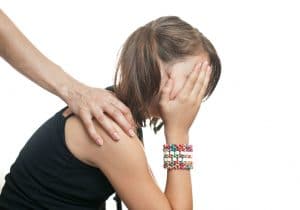 Most teenagers have enough ‘on their plate’ without the added problem of hair loss. Hair loss can be especially debilitating during the teenage years when most young people are wrestling with questions of identity, beauty and social value.
Most teenagers have enough ‘on their plate’ without the added problem of hair loss. Hair loss can be especially debilitating during the teenage years when most young people are wrestling with questions of identity, beauty and social value.
We know that the issue of hair loss can lead to teasing and bullying, which can result in horrific and long-lasting consequences to a teenager’s confidence and esteem. The emotional trauma is just not worth it, especially when treatment options are available, and most importantly, proven.
What Causes Hair Loss In Teenagers?
Hair loss is a complicated issue requiring detailed investigations taking into account multiple possible causes including genetics, hormones, diet and even stress levels. Adolescence is a turbulent time and involves some sort of change in all of the above potential issues; genes activate, hormones fluctuate, diets alter and stress levels can even effect hormonal levels.
All of these factors, in some way, will affect the life cycle of hair. Following is a brief description of how hair can be effected.
Genetics
Balding can be triggered by a number of factors by the start of puberty, and teenagers experiencing hair loss should be mindful of any family history of balding on both sides of the family.
Hormones
Hormonal fluctuations are a key part of puberty, and the body often has curious ways of adjusting. The key hormone implicated in hair loss is an androgenic (relating to male sexual development) hormone named dihydrotestosterone (DHT). DHT is produced through natural processes in the body as testosterone is broken down. This occurs in both men and women.
DHT then binds to hair follicles, causing them to shrink prematurely. Puberty, and the associated hormonal fluctuations, raise DHT levels, prompting a temporary shrinkage of hair follicles. Hair follicles can easily grow back as soon as hormones level out.
Furthermore, medicines, such as the pill, work at the hormonal level and are also known to cause forms of hair thinning.
Diet and Nutrition
A poor diet lacking in the correct level of nutrients can have damaging effects on the skin surrounding the hair follicles. This creates an inhospitable environment for hair to grow. For many teenagers, it can be difficult to get the right nutrients such as vitamin A, B-complex vitamins, and zinc into their diets.
Iron deficiencies are a common cause of temporary hair thinning, particularly for teenage girls. Iron assists in the transportation of blood and oxygen throughout the body which is imperative for hair growth. An iron deficiency can be corrected with iron supplements and the integration of more leafy greens into a diet.
Illnesses
Illnesses such as Alopecia Areata are especially common in teenagers. These illnesses result in symptoms such as bald spots on and around the scalp. This occurs when the immune system begins to target the hair. If diagnosed early, hair will usually grow back within a year.
Furthermore, stress can increase the risk of the development of an illness by weakening the immune system, leading to inflammation of the hair follicles. Some acute mental illnesses can also cause hair loss, such as trichotillomania (compulsive pulling out of hair) and anorexia and bulimia (which deprive the body of the nutrients necessary for hair growth).
Addressing all of the above issues can be the first step to restoring healthy hair. If hair loss is more severe, we recommend contacting Advanced Hair Studio immediately to Book a Complimentary Advanced Hair Check before hair loss becomes permanent.
Contact Advanced Hair Studio for Help with Teenage Hair Loss
Over 500,000 people around the world have had their lives changed by our treatments. We know they work because we have seen it first hand, and we have hundreds of thousands of happy customers who are prepared to back our expertise.
Restore your confidence today:
- Call Advanced Hair Studio
